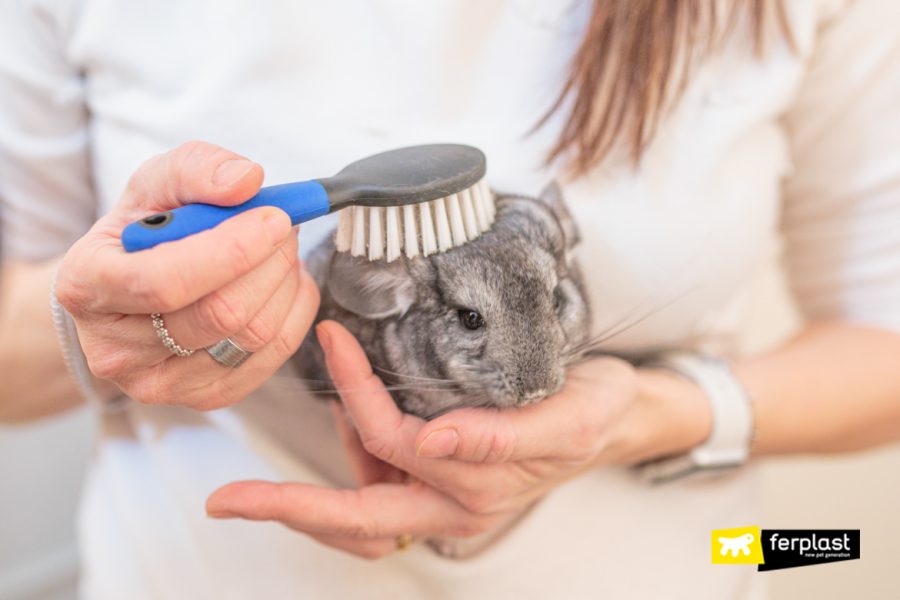Chinchillas are adventurous and lively Andean rodents that need spacious enough habitats not to get bored. But their unique trait is their fur!
The chinchilla’s coat is thick and very soft and requires special care to be maintained.
Chinchilla’s fur special features
Chinchilla hair is soft and silky to the touch. Because of this characteristic, chinchillas are considered to be among the softest animals in the world. Up until recently, before becoming a fully-fledged pet, it was sadly popular in the fur industry. From January 2022, the breeding in captivity of minks, foxes, dogs, chinchillas and animals of all species for fur is forbidden.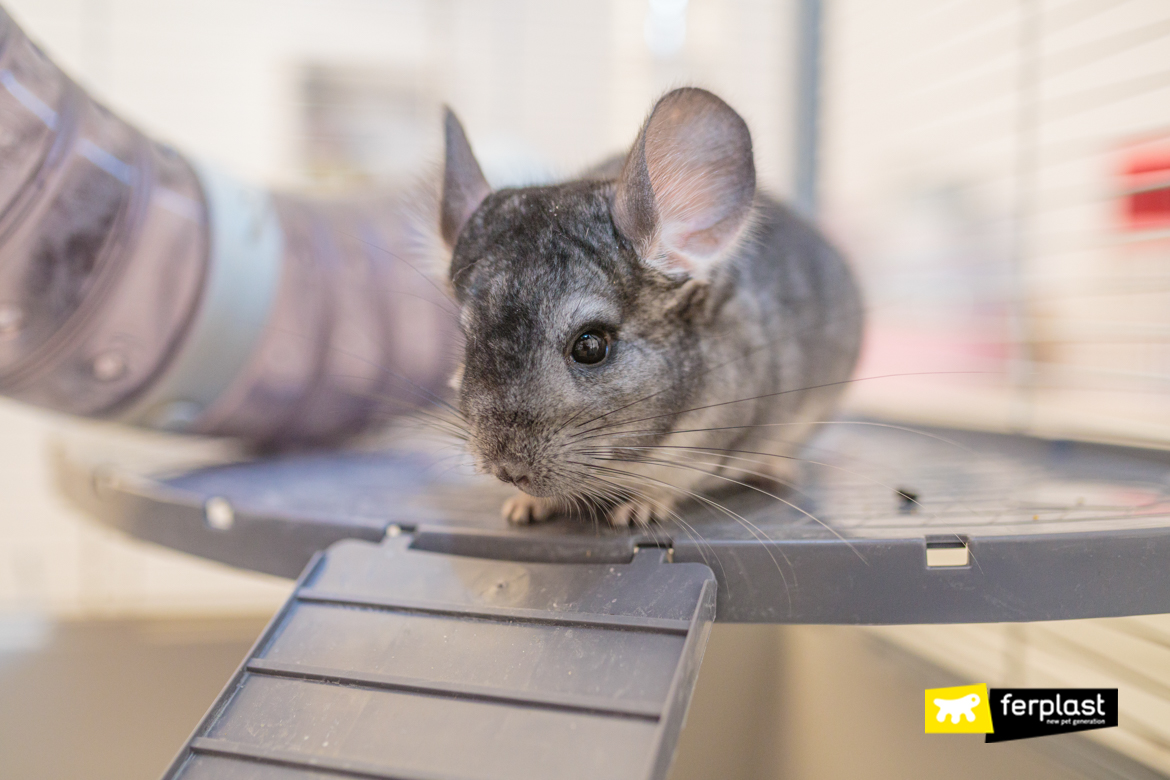 Chinchilla fur is dense with around 50-80 follicles per individual hair. Wild chinchillas are grey. However, in captivity, other colour mutations developed: beige, white (in pink and wilson shades), black velvet, ebony, violet, sapphire and pastel.
Chinchilla fur is dense with around 50-80 follicles per individual hair. Wild chinchillas are grey. However, in captivity, other colour mutations developed: beige, white (in pink and wilson shades), black velvet, ebony, violet, sapphire and pastel.
Chinchilla fur care
Special care is needed to keep the chinchilla’s coat healthy and strong.
Avoid excessive cuddling
Although its soft fur is irresistible, it is not recommended to cuddle the chinchilla for too long. In fact, the capillary structure of its hair makes it particularly weak. Too much petting would cause excessive hair loss.
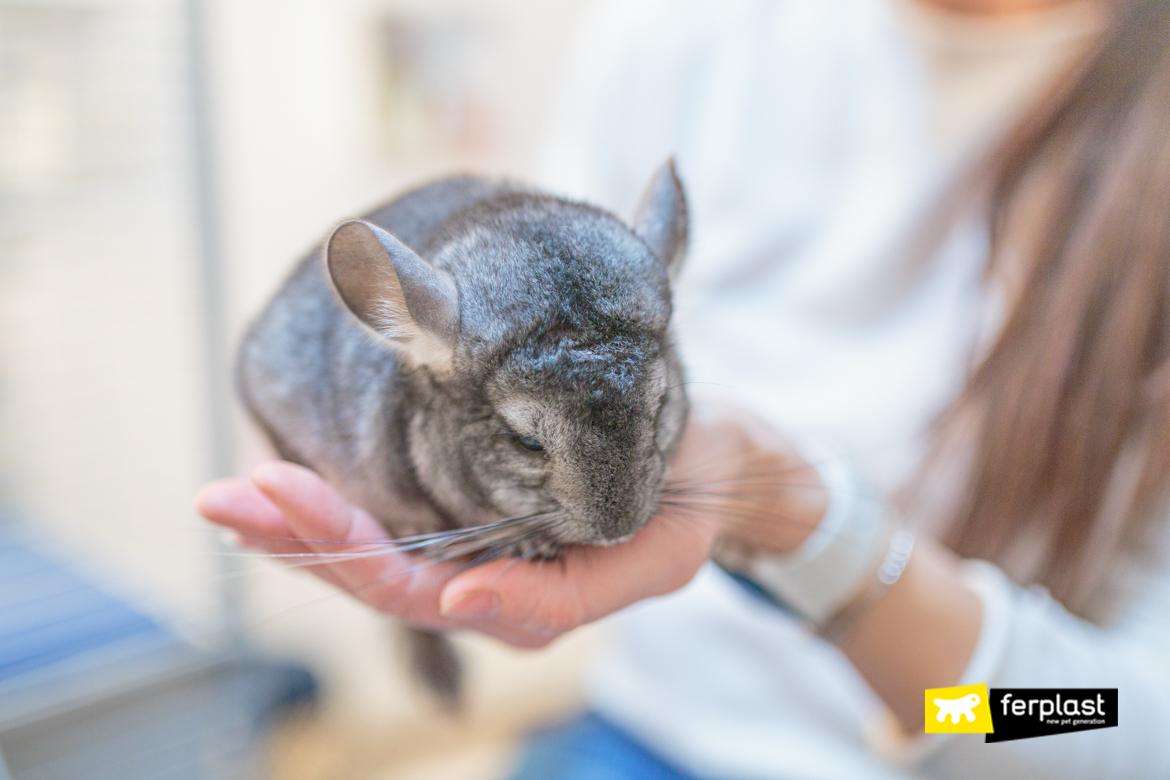
Self-manages its hygiene
One of the things you definitely must not do is wash your chinchilla with water. The rodent has no waterproofing grease, so once the hair is wet, it soaks in water. Chinchillas would find it difficult to dry out and could suffer from health issues: pneumonia, fungal infections or mold growth. Chinchillas take care of their own cleaning. They clean and degrease their hair with regular “baths” of fine sand that absorb moisture from the fur. This keeps the hair separated and prevents the formation of knots.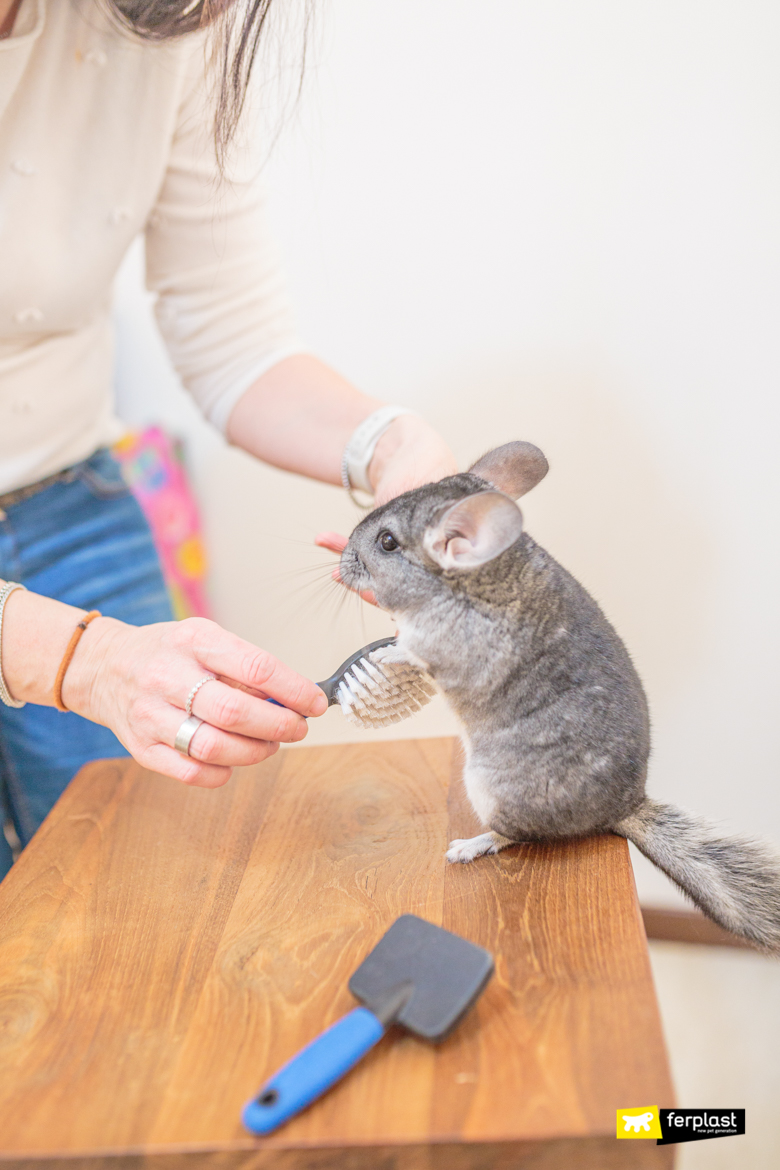
Brushing chinchilla hair
To keep the hair shiny and soft, it is recommended that you brush your chinchilla daily with special accessories, such as Ferplast’s brushes and combs for rodents. The combs or the carding brushes are ideal for removing dirt and any dead hair. The brushes with short, soft bristles do not touch the skin and work gently on the coat. Otherwise, double-bristle brushes remove knots on one side and make the coat smooth and shiny on the other. 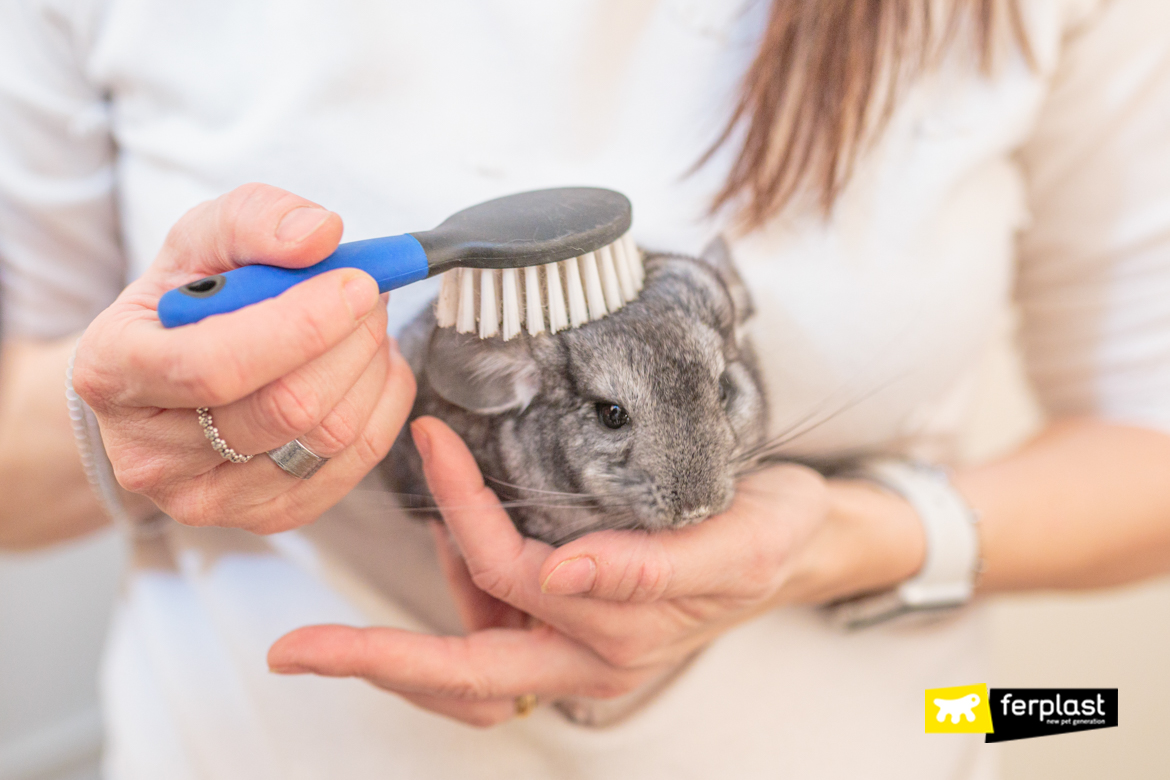
Brushing the chinchilla’s hair requires gentleness. First, separate the hair to see if there are any knots, then remove any dirt with the comb and lastly, brush towards the natural growth direction of the hair.
Fun facts about chinchilla fur
Did you know that if the chinchilla is frightened, his fur falls out? When under extreme stress, the chinchilla suddenly loses large amounts of fur, especially on the tail. In the wild it is a defense mechanism against predators, that also applies to domestic chinchillas.
The chinchilla mostly looks after its own hair. A little extra care from the pet parent is a guarantee that the fur will always be tidy, soft and shiny.

